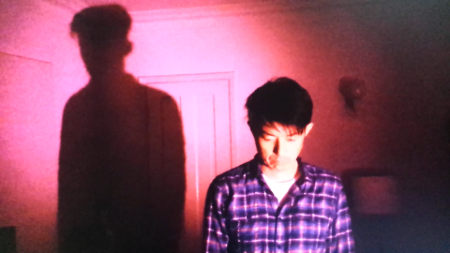コトコ
366 Weird Movies may earn commissions from purchases made through product links.

DIRECTED BY: Shinya Tsukamoto
FEATURING: Cocco, Shinya Tsukamoto
PLOT: A young mother suffering from violent hallucinations loses custody of her son before a mild-mannered novelist enters her life.

COMMENTS: As my trip through Shinya Tsukamoto’s back-catalogue continues, my appreciation for his genius grows. Kotoko manages to be the most straightforward of his films while also being the most disturbing. There is no metal grafting, no superhuman violence, and, despite the narrator’s unreliability, the action is grounded in the mundane. The dark, harrowing side of the mundane. Perhaps not “weird” for our purposes (though it comes close), Kotoko stands out among the auteur’s typical work—and proves that Tuskamoto’s toolkit of perturbation extends far beyond his “typical” mechano-nihilistic visions.
We first meet Kotoko (J-Pop star “Cocco”) as she narrates how she sees “double”. At any moment Kotoko, may witness someone doing one thing—reading along with a toddler, say—only to see that person’s double as well, typically acting as a raging, violent id. She is aware of her condition, an affliction she can only ward off through song. Her sole motivation for enduring is her infant son. After a dramatic breakdown spurred by a child’s screams and spilled stir-fry, the boy is taken into her sister’s custody. Kotoko’s latent self-destructive tendencies worsen until she meets a quiet writer (Shinya Tuskamoto), who overhears her singing on a bus and decides to stalk her.
The first act is unsettling, the third act is nigh-on devastating. But the second—that’s where Kotoko is most bizarre. “What madness ensues?,” you ask. Amazingly, none. The film’s middle tranche is the “romantic comedy” filling of an otherwise dispiriting donut of a story. Cocco and Tsukamoto have a magical, socially inept chemistry. As a shy and somewhat bumbling literary celebrity, Tuskamoto adds “awkward romantic interest” to his acting arsenal (previously limited to “metal fetishist” and “emotionally benumbed salaryman”). During one of his stalking-visits, he fears the worst when Kotoko doesn’t answer her door, so he breaks in and finds her bleeding on her bathroom floor. Kotoko reaches almost mad-cap levels of silly dialogue and physical comedy as he charges back and forth between the bathroom and the place where she keeps the towels, always grabbing the wrong piece of fabric, while Kotoko patiently and bleedingly gestures and corrects him.
Had this continued, Kotoko would deserve a place amongst our esteemed, weird titles. That it does not isn’t a failure in filmmaking, of course, but a testament to the versatility of Tsukamoto. Instead, the rom-com provides the audience a much-needed breather between the setting up and knocking down of the titular heroine. Kotoko is something of a vanity project for the famous J-Pop star, but it is one of the oddest celebrity vehicles I’ve ever seen. Whether teary-eyed, widely smiling, writhing, singing, or dancing, Cocco exhibits a violent vulnerability not typically associated with mega-stars. With Tsukamoto, she finds the perfect technician to bring her vision to life; with Cocco, Tsukamoto gets to prove that whatever the story is, he can tell it–even if there aren’t any gears, cogs, or drill-bits.
WHAT THE CRITICS SAY:




